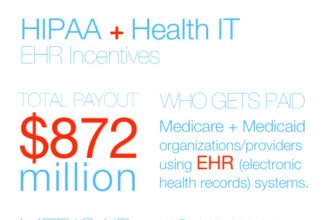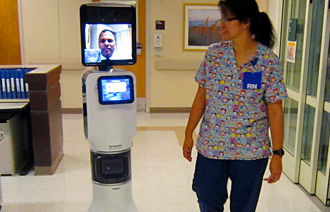New drugs are expensive. New medical devices are likewise. CT and MRI and ultrasound scans cost many dollars each. We are often told that it is these new medical technology advances that are driving the escalation of health care costs. Is this an appropriate contention? I don’t think it is the root cause.
New drugs are expensive. New medical devices are likewise. CT and MRI and ultrasound scans cost many dollars each. We are often told that it is these new medical technology advances that are driving the escalation of health care costs. Is this an appropriate contention? I don’t think it is the root cause.
Over the last four weeks I have written about new technologies and their coming impact on medical care. We generally think of new technologies (including new, branded drugs) as pushing up the cost of healthcare. There is truth to this contention, of course, but often the real problem from a cost perspective is inappropriate use. And this happens all too often in medical practice today because the physician does not have (or perceives he or she does not have) the required time for a more complete history and some thought time to figure out a patient’s problem. The result is a quick reflex to send the patient for an imaging study, for additional laboratory tests or to a specialist – who in turn will order tests, imaging or even a procedure. The other quick reflex is to prescribe a drug when lifestyle changes might be more appropriate – say a statin instead of diet change for elevated cholesterol; an H2 blocker instead of a diet change, bed blocks, and reduced caffeine and alcohol for heartburn/reflux. This tends to happen to with any patient problem but it is especially an issue for patients with complex chronic illnesses – diseases that once developed like heart failure or diabetes, are life long. Indeed it is with these patients that some 70-85% of health insurance claims paid are concentrated.
When, instead, the patient has a primary care provider that has (or takes) the time to carefully evaluate each issue and who is adept at coordinating with needed specialists, the costs of care go way down. Patients end up with many fewer prescriptions, fewer tests and fewer referrals to specialists. Of course tests, imaging, specialists and procedures are often appropriate and indeed critical. This point is to limit them to those who really need them. This not only reduces costs but improves safety and quality. It also improves patient satisfaction.
But primary care physicians are frequently in an unsustainable business model, one where reimbursement has been held constant, gone down some or gone up just slightly whereas office expenses and insurance costs have risen routinely each year. The PCP makes up for this by seeing more patients (“make it up in volume”) for less time each. Short visit times are fine for many simple problems but not the more complex. The result is a PCP who cannot give the time needed for really good preventive care or for close coordination of chronic illness care.
And this is driving more and more PCPs to no longer accept insurance, including Medicare and commercial products. They expect the patient to pay at the door just as was done a few decades ago. Or they have opted to have a retainer based practice where they limit the number of patients to about 500 thus guaranteeing the time needed to give really comprehensive care to their now fewer number of patients. Both of these options get the patient and the provider back to a more typical contractual relationship between professional and client. And it means that new technologies (or drugs) are used more appropriately and therefore with less cost to the system.
So don’t blame new medical technologies and drugs for the rapid escalation of medical costs. Look instead to how and when they are prescribed.
Stephen C Schimpff, MD is an internist, professor of medicine and public policy, former CEO of the University of Maryland Medical Center and consults for the US Army (where this material was first developed for TATRC), medical startups and Fortune 500 companies. He is the author of The Future of Medicine – Megatrends in Healthcare and The Future of Health Care Delivery. Updates are available at http://medicalmegatrends.blogspot.com







